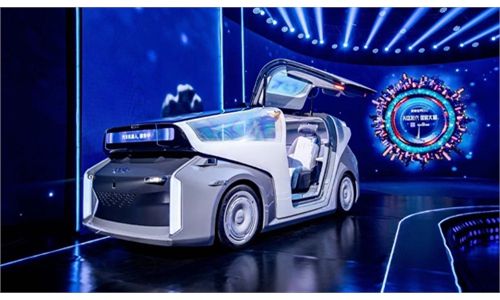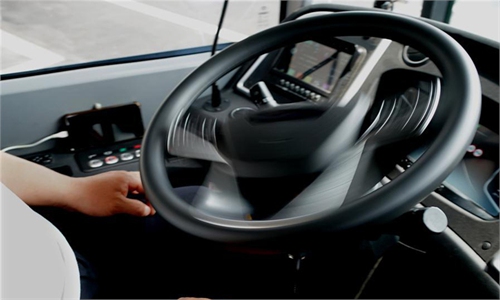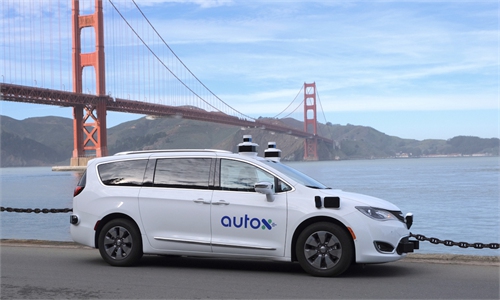
A concept image of a self-driving vehicle powered by artificial intelligence Illustration: VCG
Chinese self-driving startups are enhancing technology innovation as China becomes the world's top market for smarter cars.An autonomous driving startup Haomo.AI said on Wednesday that it had delivered three new sets of products for passenger vehicles in the past two and a half years, and that a version equipped with urban NOH (Navigation on HPilot) would enter mass production in September.
The carrying rate of high-level assisted driving will exceed 70 percent by 2021, according to Zhang Kai, chairman of Haomo.AI.
Meanwhile, off the back of huge demand for large model training, the company launched a supercomputing center to cut training cost and released China's first large-scale automated driving scenario library based on intelligent vehicle cooperative systems, in a bid to further accelerate the growth of China's automated driving sector.
In terms of automatic distribution of terminal logistics, the company launched an updated version of its propriety system, which has already entered mass production.
Separately, self-driving tech startup Pony.ai said recently that it has obtained ISO 26262 Automotive Functional Development Process UL Certification, which will help avoid danger caused by the functional failure of safety-related electronic products, and reduce related traffic accidents and potential recalls.
Earlier, the company said it plans to mass produce autonomous driving trucks in China, with equipment manufacturing giant Sany Heavy Industry.
With the rapid development of new technologies such as AI, 5G communication, and big data, the popularization and application of autonomous vehicles has accelerated rapidly, gradually shifting from research and development testing to real-world usage.
On August 25, Han Jinghua, an official from the Ministry of Transport said that more than 10 cities across the country now allow autonomous vehicles to operate in designated quarters and at specific time for commercial trial operations of taxis and public buses, significantly expanding application scenarios.
On August 8, the Ministry of Transport issued draft guidelines to encourage the use of autonomous cars for taxi fleets under certain conditions, in a move that companies and analysts say will help accelerate the commercialization of self-driving vehicles.
The southern Chinese metropolis of Shenzhen on August 1 started allowing fully autonomous vehicles to operate on certain roads as a local regulation on smart and internet-connected vehicles came into effect.
Global Times



